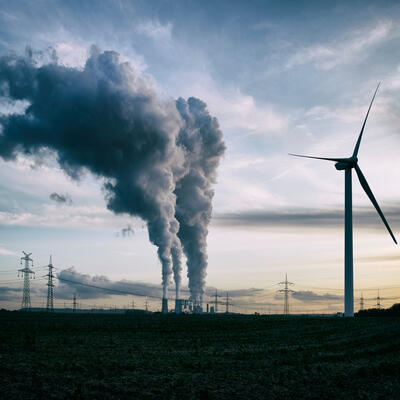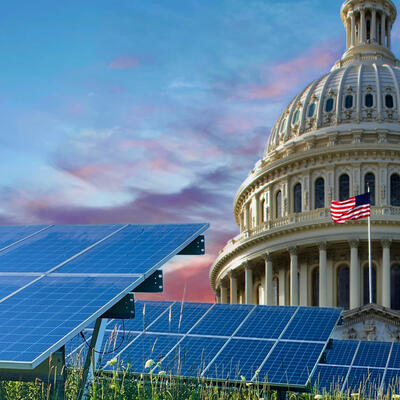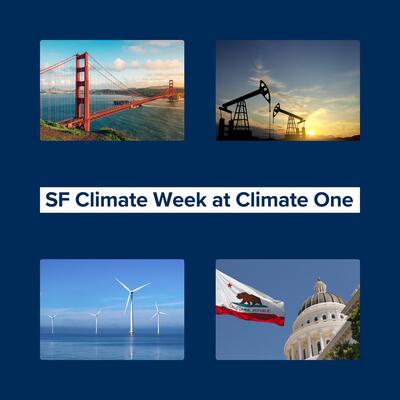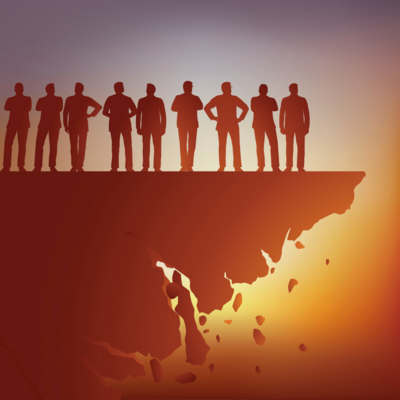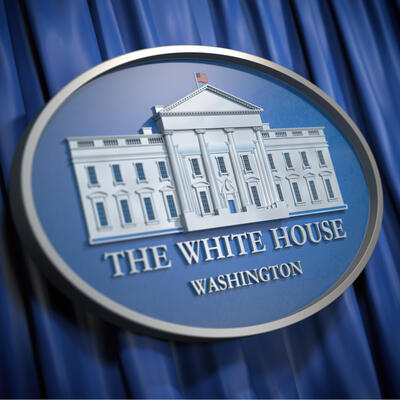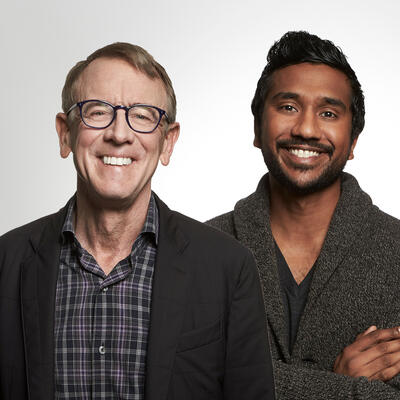
John Doerr And Ryan Panchadsaram: An Action Plan For Solving Our Climate Crisis Now
Guests
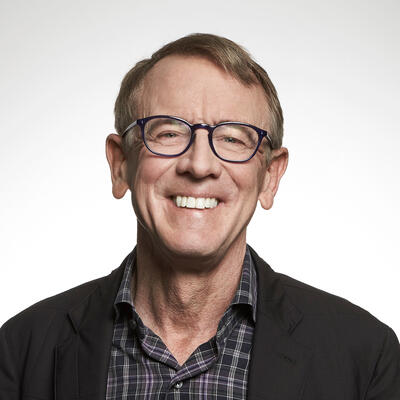
John Doerr
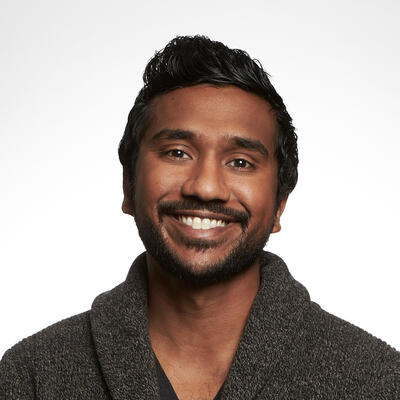
Ryan Panchadsaram
Summary
Beyond his position as chairman of the venture capital firm Kleiner Perkins, John Doerr rose to global prominence in the business world with his popularization of OKRs (Objectives and Key Results), which he promoted in his best-selling book, Measure What Matters. Could the same set of management tools be applied to preventing the growing climate crisis? In Speed & Scale: An Action Plan for Solving Our Climate Crisis Now, John Doerr and Kleiner Perkins advisor Ryan Panchadsaram argue that it can.
On this Climate One episode, they present their detailed strategy, but acknowledge it won’t be easy to accomplish.
“This is a war. This is a revolution. It's not some kind of green party that we’re having here,” Doerr says. “There are winners and losers. There are incumbents that are fighting like crazy to preserve their fossil-based future and we have to beat them. We have to defeat them. We’ve got to defeat them through movements, through politics, and through policy.”
Doerr says the status quo is insufficient. “What we’re doing is not enough. It's not nearly enough. And so, we need greater urgency, greater ambition.”
His book lays out a plan with six objectives: to electrify transportation, decarbonize the grid,fix our food systems, protect nature, clean up industry, and remove the carbon in the atmosphere. Doerr says what makes his proposal different from other existing plans is the focus on goals that are quantitatively measured and time-bound.
There are powerful incumbents who don't want things to change. Ryan Panchadsaram says we have to push for action at all levels, using what they call “accelerants” to make things happen faster.
“The first is to win on the policy and the politics. So, all the things happening at COP, all the things happening in Congress. We need people to make commitments as well as pass incredibly good policy. We then also need to turn movements into action from the ballot box to the board room,” he says. Another tool is innovation. “The role of innovation is to drive down the costs of clean technologies. And then the fourth accelerant is investment because you need to invest in R&D, you need to invest in these companies to exist. You then need to deploy these clean technologies to replace the old ones.”
Panchadsaram says different generations need to lock arms and work together to combat the crisis.
“No matter where you live in the world there is a global weirding that’s happening that you can feel at your doorstep. If you listen to the scientists, they say it's going to get weirder and it's going to get worse. And so you have to, we have to act.”
Related Link:
Speed and Scale: An Action Plan for Solving Our Climate Crisis Now
Full Transcript
Greg Dalton: This is Climate One. I’m Greg Dalton. Two venture capitalists have written a new plan for how to address the climate crisis – which is growing more pressing all the time.
Ryan Panchadsaram: We’re feeling it, we’re seeing it. You know, no matter where you live in the world there is a global weirding that’s happening that you can feel at your doorstep. And I think if you listen to the scientists, they say it's going to get weirder and it's going to get worse. And so you have to, we have to act.
Greg Dalton: They present a detailed strategy, but acknowledge it won’t be easy to accomplish.
John Doerr: This is a war. This is a revolution. It's not some kind of green party that we’re having here. There are winners and losers. There are incumbents that are fighting like crazy to preserve their fossil-based future and we have to beat them. We have to defeat them. We’ve got to defeat them through movements, through politics, and through policy.
Greg Dalton: John Doerr And Ryan Panchadsaram: An Action Plan For Solving Our Climate Crisis Now. Up next on Climate One.
Greg Dalton: This is Climate One, I’m Greg Dalton.
Greg Dalton: On today’s show we feature a venture capitalist who backed some of today’s biggest companies - Amazon, Google, Genentech - and who looks, with some remorse, at what his legacy might be. Before we hear from him, I want to acknowledge the legacy of E.O. Wilson, who started studying ants in high school and became known in some circles as “the antman.” I never had the honor of talking with him, but he was a giant in the field of conservation. He created the new field of sociobiology, the idea that genes shape our social behaviors. Wilson died on December 26. After two Pulitzer prizes and numerous accolades, in 2016 Wilson wrote a book titled Half-Earth: Our Planet’s Fight for Life. He noted that the rate of extinction now is 1,000 times greater than any time in human history. His response was to call for protection of half of the earth's lands. About 15 percent are protected today. While lands get most of the attention, he also called to conserve half of marine areas, which are even less protected. That ambitious goal, laid out by Wilson when he was in his late 80s, is the foundation of today’s efforts to conserve 30 percent of lands and waters by 2030. The Biden Administration adopted Wilson’s vision in a plan to steward public, private and tribal lands. E.O Wilson was 92.
John Doerr is chairman of the venture capital firm Kleiner Perkins, a pillar of Silicon Valley. He is author of the new book Speed & Scale: An Action Plan for Solving Our Climate Crisis Now. Also joining us is Ryan Panchadsaram, an advisor at Kleiner Perkins and collaborator on the book.
Greg Dalton: I started our conversation by asking John about an experience on the TED stage about a decade ago. Here’s the backstory: In 2006, he hosted a dinner after a screening of Al Gore’s documentary An Inconvenient Truth and then went around the table asking for everyone’s reaction. His then 15-year-old daughter said she was scared and angry, and said – “dad, your generation created this problem, you better fix it.” A few years later Doerr gave a TED talk and did something highly unusual for a hard-nosed Silicon Valley venture capitalist. We’ll start by hearing a clip from the TED stage.
[START PLAYBACK]
John Doerr: I can't wait to see what we TEDsters do about this crisis. And I really, really hope that we multiply all of our energy all of our talent and all of our influence to solve this problem. Because if we do, I can look forward to a conversation I’m gonna have with my daughter in 20 years.
[Applause]
[END PLAYBACK]
Greg Dalton: So, how does that feel to watch yourself get choked up on the TED stage, John?
John Doerr: Well, I didn't plan that and right now it feels like I didn't use the last 20 years effectively enough because for all of the opportunity and innovation and clarity that we had around this crisis. What we’re doing is not enough. It's not nearly enough. And so, we need greater urgency, greater ambition. I had a conversation with my daughter Mary since the book’s come out and I’ve asked her what she thinks about it. And she thinks the book is good but the problem she’s still angry about and I think we’re not gonna be able to rely on our generation alone to solve this problem; we’re gonna need hers because it's her future and Greta’s future. And I think the anger of impassioned youth gives my heart great hope for our ability to end up with a habitable planet.
Greg Dalton: Thank you for sharing that. And for, you know, crying on the TED stage. I cried after I went to the Arctic in 2007, which inspired me to create Climate One and it's quite moving. On the wall, in my office, I have a father with two children on his knee and they’re underwater and they're saying, daddy what did you do during the climate wars? Ryan, I wonder if you’ve ever seen that video. You’ve worked with John a lot have you ever seen that video before?
Ryan Panchadsaram: The Ted video of course. I think when you talk about the clean tech movement climate tech movement, John's TED talk is a must watch, right. You have the Inconvenient Truth that sets the stage, but that talk that John did really set the tone and call the arms that we need to harness the powers of innovation to go after this. But like John says, that was years ago and we are at today and we've never emitted more than we've ever had 59 billion tons and the problem is still staring at us right in the face. And we need to act now and we need to act urgently.
Greg Dalton: Right. It’s mind-boggling to think that like half of all the carbon emissions emitted ever have happened in the last 30 years since Al Gore's first book. John, you talk about, you know, the next-generation having to do it. Greta’s response has been don't patronize young people. You people in power you give up power you did this. She would say that there might be a dodge on boomers like us who created this. So, I wonder what you think about that in terms of the people with power have to do more than the young people who don't have as much power as we do.
John Doerr: I think she's exactly right. I generally find myself agreeing with Greta. She's got a point. The people with power, the nations with power. We have to lead, we have to go first. US is the all-time alpha historic emitter. True, China's largest right now but what that means is that we got to go first to prove that you can decarbonize and to lower the cost for everyone else. And then it’s incumbent on the wealthy nations, the US, China and Europe to fund the energy, the clean energy transition for the developing world. There is a great issue of climate justice. It's really a recurring theme in this book and that's because it’s the white rich developed nations of the world are the ones who are suffering the least. It’s the developing world we know which is suffering the most and the developing world is the least able to do anything about it. We’ve also got to pay attention to justice in the communities in our transition to this. And I think it’s the biggest opportunity of our lifetime to a clean energy economy, say by 2030. We’ll create 30 million new jobs, we'll destroy about 5 million jobs in those communities that depend on fossil fuels. We got to make sure they have their fair share of that new economic opportunity.
Greg Dalton: Well, oil, coal and gas were mentioned for the first time in an agreement negotiated at a UN Climate Conference, kind of hard to believe it oil, coal and gas were not mentioned in the Paris Accord. And at COP26 in Glasgow, UN Secretary-General Antonio Guterres opened the meeting by saying essentially that everyone already knows what needs to be done. Let’s listen to a bit of that speech.
[Start Playback]
Antonio Guterres: So, as we open this much-anticipated climate conference, we are still having climate disaster. Young people know it. Every country sees it. Small island developing states and other vulnerable ones live it. And for them, failure is not an option. Failure is a death sentence.
[End Playback]
Greg Dalton: John, as you just noted the US is the largest historic emitter of carbon pollution. What moral responsibility do we have for people in developing countries that are being harmed, you know, given that death sentence by our lifestyles?
John Doerr: It's an absolute responsibility that we have. And by the way, I don't think we’ll be able to solve this problem unless the world rallies together much in the way the world did to the existential threat of World War II. If you remember in the early 1940s, the axis powers had the allies on the run, the US had not committed to enter the war. Churchill was standing alone in Britain, Great Britain, and democracy was on the line; it was existential. And what happened? In four short years, the West stopped making automobiles. Stop making appliances. And turn that manufacturing capability over to making aircraft battleships, tanks 268,000 fighter planes were made 28,000 battleships. And it’s relevant to this mission because the whole world mobilized and succeeded in defeating an existential threat. My book tells the story of plans and how important plans are. And the plan that was written by FDR on a napkin for his Gen. Arnold after a December meeting and he wrote down just four key steps that were needed to win the war. Well, we have a plan that has six key objectives and it can allow the world to win the war against this existential crisis.
Greg Dalton: The difference that time of World War II, though, is that there was a human enemy with an intent to inflict harm. This time the enemy is what maybe some particular companies. Maybe some black goo or a rock that we dig out of the ground. You know it's a little hard to mobilize people when we are, Ryan, we are complicit in this. And in fact, it’s exactly been a fossil fuel industry tactic, BP popularized the personal carbon footprint to put that back on us so we feel guilty we argue we judge each other and we don't have Hitler and Mussolini to rally against.
Ryan Panchadsaram: Yeah, we’re missing a common enemy, but I think one of the hopes in the plan is to show that the common enemy is our emissions crisis, right, don't talk about it as this abstract thing. We truly emit a certain amount as individuals, as cities, as states and we have to go after those sources of emissions and that's the true enemy that is the thing, we have to turn the tide on. But you're right the impacts of climate change and the impacts of a warming world take time to be felt. But I think if there's anything different now than five years ago 10 years ago is that we’re feeling it, we’re seeing it. You know, no matter where you live in the world there is a global weirding that’s happening that you can feel at your doorstep. And I think if you listen to the scientists, they say it's going to get weirder and it's going to get worse. And so, you have to, we have to act.
Greg Dalton: There's a lot of debate in the climate conversation is what can I do the individual, right? And we all feel inadequate and you know I interview lots of very powerful people they feel inadequate. I interviewed Ray Mabus running the U.S. Navy he’s like I don't have enough. Like everyone feels just minuscule in proportion to the problem. So, in your theory of change what is it individual who is not running a company you know is this sort of a kind of a retail problem or is it something that the elites with power have to change? John, first, what's the role of individuals in your theory of change?
John Doerr: Well, individual action is essential and it's expected. So, if you can afford an electric vehicle, buy an electric vehicle. If you can get solar for your home or your business by all means go do that. But my theory of change, this book is written for the leader inside every reader. People can be leaders from all walks of life. FDR had this tremendous definition of leadership. He said leadership is the art of getting others to want to do what must be done. So, in addition to a comprehensive OKR-driven plan with objectives, measurable key results which gives a lot of people great hope there’s a softer part of this book. And that's the story of leaders from all walks of life in Virginia, a cross country track that teams that teams up with parents to flip that school district into electric buses. So, they’re not running behind diesel buses anymore or a company where the employees push the management team to not only make a commitment to net zero but to meet that commitment. Or some scrappy lawyers who team up with Michael Bloomberg to shut down coal plants all across the US. Every one of these is a story of collective action and frankly that's all we have time for now. If we don't move collectively, we will not get the job done.
Greg Dalton: Right. I remember Al Gore citing many times that if we want to go fast go alone. If you want to go far go together. We have to go fast and far. Ryan, you know, what's the role of individuals because we all feel overwhelmed by this. How do you think about yourself, your own power?
Ryan Panchadsaram: Taking John’s example right there of electrifying your vehicles as well as trying to find a way to switch to solar in your home. That's just actions an individual can take, right. And the message of the book is you have to do that. What you also have to do is if you live in a city push your grid to switch to clean energy, right. That is something that we are capable of doing that is just a new purchase agreement between your city and its utility when it comes to electrifying your mode of transportation. We got to push cities to give people new alternatives, right. John talked about clean electric buses but also things as simple as protected bike lanes, right. When you look at the numbers of the transition of electric vehicles any fossil fuel vehicle that's on the road, the tens of millions are being bought today, they’re gonna be there for another 10 to 14 years. And so, cities and places have to give other solutions like those lanes where you can just hop on a bike and take it. And that’s like kind of an interesting thing when it comes to individual decision-making power there's range anxiety when it comes to getting into an EV, there's injury death anxiety when it comes to getting on a bike. And so, you talk about like what individual actions you can take. It’s the things you can do yourself but the things you can push your cities to do, the things you can push your states to do and then ultimately your countries to do where the big impact happens.
Greg Dalton: Yeah, I rode a bike here today. Thanks for reminding me of the personal injury risk I took. Let's talk about markets because obviously you're both, you know, very involved in markets and John you talk about we need to transform all of society. Does that include capitalism? Is capitalism -- it’s getting a lot of critiques these days whether it’s gone too far, it's out of whack, wealth distribution, etc. To what extent do we need to rethink also market incentives and capitalism itself?
John Doerr: Well, the world is rethinking the role of businesses and we saw historic change in its responsibilities coming out of the Business Roundtable a couple years ago when they agreed that the purpose of business is more than to enrich shareholders. I think harnessing capitalism in businesses is essential if we’re gonna get this job done. There's more money that flows through markets in a day than all the governments of the world in a year. So, governments have an essential role to play and, in my view, they’re lagging behind other sectors of civil society in trying to get this enormous and largest in our lifetime transition to a new clean energy economy, a new clean energy way of living.
Greg Dalton: And one way government is lagging is because some fossil fuel businesses are in there, putting on the brakes.
John Doerr: They absolutely are. And I think it’s important in our conversation, to be sure that we get to go over this plan and just as important the accelerators that will make the plan happen in enough time that we get to net zero by 2050 and we get to a 50% reduction by 2030 on our way to that great end goal.
Greg Dalton: You’re listening to a Climate One conversation with the authors of Speed & Scale: An Action Plan for Solving Our Climate Crisis Now. If you missed a previous episode, or want to hear more of Climate One’s empowering conversations, subscribe to our podcast wherever you get your pods. Coming up, John Doerr digs into the details of his plan:
John Doerr: It has six objectives: electrify transportation, to decarbonize the grid, to fix our food systems, to protect nature, to clean up industry like how we produce cement and steel. And then finally to remove the stubborn carbon that remains.
Greg Dalton: That’s up next, when Climate One continues.
Greg Dalton: This is Climate One. I’m Greg Dalton, and we’re talking with John Doerr and Ryan Panchadsaram, authors of Speed & Scale: An Action Plan for Solving Our Climate Crisis Now. I asked John how his plan differs from several others out there promising to do the same thing.
John Doerr: What we have is lots of goals. And the difference between a goal and a plan is that you quantitatively measure and ascribe a date, a time by which it must be done. And so, one of the world's great all-time innovators and managers Andy Grove invented a system at Intel that this book is based on and organized around; it's called OKR for Objectives and Key Results. The objective is what you're trying to get accomplished. And the key result is how we’re gonna get it done. There is broad agreement on what we must do to get to a clean energy economy. The hard part is how we get there. How we get that done, what choices we make. What priorities do we choose? This plan, it has six objectives: to electrify transportation, to decarbonize the grid, to fix our food systems, to protect nature, to clean up industry like how we produce cement and steel. And then finally to remove the stubborn carbon that remains. Six clear objectives. And then there are four accelerators to get that job done. For each of these objectives there's 3 to 5 clear, crisp measurable key results. All told, 10 objectives, 55 key results. And every one of these is a tall order. It's ambitious. But if we get this done, we can get to net zero by 2050.
Greg Dalton: And all that sounds very logical and Ryan maybe you can pick up on this. And each of those places there are powerful incumbents who don't who are resisting that change. If we lived in a rational world and we were rational beings then a lot of these things would make sense and they would be win-win. But there are powerful incumbents in the way, Ryan, who don't want your plan to happen.
Ryan Panchadsaram: Absolutely. So, the first part of the book takes you through how you go from the 59 billion tons to zero those six objectives John talked about. Well, we got to get there faster, right. If we let nature take its course it may take us 100 years to get there. But if we want to avert any warming over one and a half degrees, we have to get to net zero by 2050 and we have to cut half of our emissions in the next 10 years. And so, the book shares in part two, four accelerants, right, to make us get there faster. The first is to win on the policy and the politics. So, all the things happening at COP, all the things happening in Congress. We need people to make commitments as well as pass incredibly good policy. We then also need to turn movements into action from the ballot box to the board room. And then once you have that you have another accelerant you can lean on, which is innovation, right. The role of innovation is to drive down the costs of clean technologies. And then the fourth accelerant is investment because you need to invest in R&D you need to invest in these companies to exist. You then need to deploy actually these clean technologies to replace the old ones. And we put these four levers on an equal pedestal. You know in writing the book we interviewed so many incredible scientists, experts, activists, entrepreneurs and founders, and the one thing you kind of see is this commonality that when one lever isn't working you can lean on the other, right. And so, these four at any time if you're feeling like COP wasn't good enough you can lean on the other three levers to try to make progress.
John Doerr: Greg, I wanna speak directly to your question about incumbents. This is a war. This is a revolution. It's not some kind of green party that we’re having here. There are winners and losers. There are incumbents that are fighting like crazy to preserve their fossil-based future and we have to beat them. We have to defeat them. We got to defeat them through movements through politics and through policy. In the end the point of all the innovation is to lower the costs of this green energy future so that we can make the profitable outcome the probable outcome.
Greg Dalton: And I think that for me reminds me of 10, 15 years ago when Silicon Valley first went into green energy. And a lot of the investments then the talk or the buzz was all about drop-in biofuels fuels that you can put into a regular gas station and pump them. You could put into a regular internal combustion engine, it would work in existing infrastructure and there were Solazyme and Codexis and LS9 and a bunch of companies that were going to do that and John that was part of, you know, Kleiner Perkins and others first foray, and it didn't work out so well. Biofuels proved to be not the safe salvation that was expected. A lot of people were hoping for. So, what lesson do you take from and it was also taking on big oil, right? And what lessons do you take from that chapter first time trying to go after that powerful incumbent with a better cleaner alternative, it didn’t win.
John Doerr: So, the lesson from biofuels was that the markets are commodities as are most energy markets. People will not pay a premium for a green or clean solution. They are capital-intensive and the incumbents have arranged for a fantastic array of subsidies which our plan calls for the elimination of in order to succeed in moving to a new clean energy economy. There's other issues with biofuels along the way, competing with land use for food on the planet that's growing from 6 billion to 10 billion people. But I believe in the end, we will have synthetic fuels. We will have sustainable aviation fuels and we’ll put a price on carbon. And today's entrepreneurs and governments are much smarter I think about the need and role for regulation, standards and subsidies incentives to make these markets go. The more telling example for me is a success story for the planet and that's what happened with solar panels. These were invented by Bell Labs in 1954. A German entrepreneur a policy entrepreneur who we describe created something called the feed-in tariff. And that was Germany's gift to the world it made a market which then the Chinese government decided they wanted world leadership in. And so, they funded through state loans, solar manufacturing panels in every province in every region; it became a jobs program. The US during the recovery act put up some funds for solar panels. I invested in seven solar ventures; six of them were crushed by Chinese competition. Now, I don't want anybody to shed a tear for Kleiner Perkins or the entrepreneurs we backed. One of our solar ventures called Enphase created the micro inverters that make solar affordable for the residential deployment of solar not utility scale. And that's a business today that's worth some $30 billion. So, you have to be very mindful of markets technology innovation costs. It's a much harder thing to start a new climate tech venture but the returns are there. The rewards are enormous and we need those principally to lower-cost.
Greg Dalton: Ryan, you were recently on the board of Amyris, a company that was biofuels and kind of pivoted to cosmetics, you know, smaller volume higher-margin makes sense. What’s your take away from trying to go after big oil and companies like, you know, they’re big they’re powerful and let's face it, you know there's a lot of energy density in gasoline and fossil fuels that it serves us very well.
Ryan Panchadsaram: Yeah, you know, when you talk about the incumbents just to pick on that for a sec or two. The 59 billion tons of emissions they are someone else's business model and it's up to us to come up with alternatives. And so, when we pick on oil in particular, I think one of the lessons that we drew from Kleiner's experience and the world's experience is when crafting our innovation key results, they’re all tied to cost, right. Whether it's carbon removal or new batteries or hydrogen cost is going to be king in the markets. Bill Gates has a great term for this it’s called the green premium, right. That's the added cost of the cleaner, greener version. And when the green premium hits zero right and inverts into a discount well you can't stop the market forces. When you look at the Paris agreement from five years ago to Glasgow of just last month solar and wind was more expensive when Paris was signed. Barely any capital was going out into new clean tech ventures. You walked in the Glasgow with solar and wind, being finally cheaper than gas and oil and coal and not just that you had almost close to $35 billion going to new kinds of companies. We are in a new era. This transition is happening now, but we really need to look at the markets as truly an accelerant.
Greg Dalton: And the difference with electricity it’s a highly fragmented what is there something like 3000 utilities in the United States. Liquid transportation fuel is a lot more concentrated, there are state oil companies, there are investor owned oil companies, it’s not just Chevron and Exxon and BP there’s more than that. But John, there's a lot of concentration in power there and do you think that those incumbents, you say we’re in a war. Some people say, well, those large energy companies have capital. They have talent they have scale. We should work with them. Others say no, they're the enemy. We should not work with them. They’re gonna be clinging to their profits as long as they can because they’re not gonna make as much on the green as they do on the dirty. So, what’s your approach John to working with incumbents or, you know, isolating them and trying to marginalize them?
John Doerr: I think we work with incumbents but we do that with a clear view of what they've done in the past. The past is the past. The carbon that was emitted will be in our atmosphere for centuries to come. But I think that I want to get all the world's organizations and resources to find a way to invest in and accelerate this new clean energy future. I think there's really important questions around capture and sequestration. The most difficult of the objectives in our plan is objective number six, which is to remove carbon at scale. And the book points out that to do that for 5 gigatons, which is the mechanical component of our goal, requires the equivalent of running the petroleum industry in reverse to pump that much CO2 underground. I can't emphasize enough that this is a problem of both speed and scale. And the book tells a tremendous story of Ørsted which was the Danish natural gas developer and how they switched that company to offshore wind, totally restarted it based on their engineering and technical skills for exploration and development. And today they are the leading developer and deliverer of offshore clean energy from wind.
Greg Dalton: You also point out there’s a moral hazard there, John, that we can't use carbon capture as an excuse because a lot of the people who favor hydrogen and carbon capture are the people who want to perpetuate their business model. So, how do we avoid the moral hazard and carbon capture allowing fossil fuels to continue?
John Doerr: The book lays out a very clear set of priorities and I really credit Ryan with having crystallized these. The first thing we must do is cut emissions as deeply and as rapidly as we possibly can. And so as if the three principles are to cut, cut, cut. But at the same time, we need to conserve and you see Amory Lovins’ influence here. If the US had the same energy efficiency standards as California. We would use 25% less energy and emit 25% less pollution. Only after cutting and conserving should we be turning our attention to offsets and technologies that can remove carbon and we’ve got to do all three.
Greg Dalton: Right. And Ryan do you think that we need innovation to do that cut, cut, cut or can we do it with what we already have and we just need to deploy and roll out more thoroughly?
Ryan Panchadsaram: I would say we have, you know, technologically we have about 70% of what we need, right? The solar and wind capacity that we can add on the grid. We've got lithium-ion batteries, the prices have gone down, people are making the switch. But, it’s still impossible to tell the sun to shine when you want it, and for wind to blow when you need it to. And because of that you actually need to find ways to stabilize grids and so new technologies are gonna be needed there. We need better batteries. We need to be investing in safer advanced nuclear. And so, John and I love to say we need both the now and the new. So, on the cut, cut, cut, cut. You got to switch to the technologies we have today. There's no reason for anybody listening to be buying a brand-new fossil fuel vehicle, especially if you can afford an EV. You hold on to the one you have and make that switch when it's affordable, right, because that's about cutting your emissions. The conservation piece is a love letter to Amory and all of the efficiency experts around the world that saying, okay, well, even though you've electrified what you are using you got to still use less energy. We can’t be in the world of demanding for more and then you can lean on carbon removal. And by the way, we’re gonna still need a lot of engineered and nature-based carbon removal. When you look at all the models, IPCC, ours, you still see 10 gigatons of emissions left over in 2050, right. This is with the most aggressive cuts if everybody here does the right thing. We still emit as humanity. And so, because of that, we've got to get the ball rolling on these carbon removal technologies.
Greg Dalton: And all of this sounds really reasonable, logical, doable and Ryan when you’re talking about that what comes up for me is, you know, LED light bulbs. Incandescent lightbulbs a lightbulb that Thomas Edison would recognize from 100 years ago. And industry was on board to switching away from it. It's inefficient, you know, there’s a government rollout. And then we had this political backlash saying bring back incandescent lightbulbs, right, something that industry wants to move away from. So, that's where I get a little doubtful about in our wacky politics today doing something so as logical as your plan because you have people saying, you know, no LEDs bring back incandescents.
Ryan Panchadsaram: You know, the way to win this is for the cleaner, greener alternative to perform better and be cheaper. That ultimately at the end of the day will be the reason why the switch happened. You want someone to be buying that new Ford F150 electric truck and then going home and saying hey, it's able to like keep our house lights on when a storm happens and talk about all the benefits of all these clean green things without even saying those words. That's how you know we've won at this battle. But you're right they’re gonna cling, right, those 59 billion emissions are someone else's business model and revenue stream. And so, there's no way they're giving them up without a fight.
John Doerr: Greg, the most detailed part of this plan are the 11 key results that speak to winning politics and policy globally around the world. And so, as an example in transportation we call for decarbonizing all new cars, buses and trucks by 2035 and freight ships by 2030 and semitrucks by 2045. And we make allowances that it's gonna take five or 10 years longer in the developing world than to do this in the richer nations.
Greg Dalton: You're listening to a conversation with two venture capitalists on ways to address the climate emergency. This is Climate One. Coming up, separating real net zero commitments from distant promises:
Ryan Panchadsaram: You know, this isn't greenwashing if a company is making a commitment that is happening by 2025 that’s happening by 2023 or even 2022.
Greg Dalton: That’s up next, when Climate One continues.
Greg Dalton: This is Climate One. I’m Greg Dalton. Let’s get back to my conversation with John Doerr and Ryan Panchadsaram, authors of the new book Speed and Scale. The bipartisan infrastructure act includes investments in climate, such as electric school buses and EV charging stations. I asked Panchadsaram how that new law fits in with their overall plan.
Ryan Panchadsaram: It’s aligned really well. I mean here I wish there was more right there is more being put on the table by some of the leaders in Washington. But with the amount that's there we’ve got to make sure every bit of it isn't squandered, right. There are some 7 1/2 billion dollars going towards EV charging, right. So, for every category that is in there let’s pick on that EV charging example we've got to make sure states and cities deploy them really well, right. There's a whole bucket of money that's there for direct air capture. We’ve got to make sure it's deployed really well. And so, what we have to do right now is really push not the congressional side of DC but really, the executive branch in DC just able how are you gonna deploy it how are you gonna get every little dollar that comes from out there to removing more carbon putting EV chargers in the right spots and things like that because that's the opportunity that we have here. This is our one grand chance to really get the ball going. I know John has points of view on this as well too.
John Doerr: Well Greg, your recent podcast on the infrastructure bill pointed out that there are equal amounts of funding for both fossil fuels favored infrastructure more roads and bridges as well as for the electric vehicle chargers. And the real action I think is gonna be in whether or not we get a reconciliation bill passed that has substantially stronger incentives to accelerate the deployment of renewables. We've got to go for the gigatons we’ve got to be ruthlessly focused on the 20 largest emitting nations. The sectors of each of their economies which differ, the venues the decision-makers and treat this like the mother of all political campaigns because it's the campaign for our life.
Greg Dalton: And a key part of that, John, is no new investment in fossil fuel infrastructure, right. But we’re in this very difficult time where and it's been pretty awkward watching the Biden administration say we need to get off oil oh but Saudi Arabia, please send us some more so that the price doesn't go up so high that we get it voted out of office.
John Doerr: We’re gonna have to have the courage and the resolve to get through a transition a total transformation of how the economy works from a fossil fuel dirty economy to a clean energy one. And there are going to be more imbalances between supply and demand. We will not pull this off perfectly in every market in every country around the world.
Ryan Panchadsaram: One thing that's for certain is we are going to be using more coal and oil this winter, right. Like that is a fact just because of the demand patterns it’s because of COVID, but that shouldn't be the reason we slow down deployments of renewables, right. Renewables, i.e. solar and wind are some of the most predictable sources of energy, but we need to deploy more. And so, if anybody ever says well, we need more coal, oil and gas look they give us predictability, we've gone to war over that stuff and its fluctuations in pricing, right. And so, more solar and wind we’ve got to deploy, deploy, deploy.
Greg Dalton: John, Silicon Valley has typically asked for a few things of government. You know, fund basic research provides us an educated workforce support free trade protect the carried interest loophole and get out of the way of everything else. The climate urgency has changed, you said government is lagging partly because it's being slow down by industry. Has this climate work changed your view of the role of government?
John Doerr: It's taught me a lesson that government is more important than ever before. And it's hard for the government to get ahead of the body politic for political leaders to move much further than their voter base. And so, key result A.1 turning movements into action is to have the climate crisis, Greg, be a top two voting issue in the 20 top emitting countries by 2025. By 2025 it’s just three years from now. Climate is not a top two voting issue in the United States it’s not a top two issue in India. It's not a top two issue in China. It is in Europe and we have a 15-year-old Swedish teen Greta Thunberg to thank for that. In 2018, she was a lone student staging strikes on Fridays in front of the Swedish Parliament. By 2019, as you know, she catalyzed a worldwide demonstration of some 8 million climate largely youth who were agreed. And so, we need measurable action plans to cause that to occur again and again and again. If we don't turn movements into action if they remain just protests. I don't think we’ll succeed.
Greg Dalton: Right. And that's something that companies are doing lots of companies, Ryan, are doing net zero pledges, etc. How do we know that that's not greenwashing? How do we know that those pledges which, let's be honest they’re made when the CEO who makes them will not be in office will be retired somewhere by the time those pledges come due. You know, how much faith should we put in these corporate net zero pledges?
Ryan Panchadsaram: When John talk about OKR it’s a great key result he’ll always say is time bound. It is time bound and measurable. And so, you know, this isn't greenwashing. If a company is making a commitment that is happening by 2025 that’s happening by 2023 or even 2022, right. So, when you think about the commitments being made in 2050, 2040 in that range most likely the leaders that are making them are not gonna be the CEO. And so, if you really want to believe that action is happening you got to see the commitments that are being made that are sooner and the true actions that are happening right now, Greg.
John Doerr: You know, Greg, in doing the research for this book I was really struck by the commitment of Doug McMillon of Walmart to more than drive their suppliers and their supply chain to net zero but to be the world's first regenerative company to set aside millions of acres of forest land, millions of acres of ocean for regeneration and restoration. Walmart is a Fortune One company I mean it’s been at this a long time and it's honest about saying they’ve got a long way to go. But that kind of leadership I wish I saw that in the governments of the world.
Greg Dalton: Yeah, and Walmart can do a lot when they act at scale, they can certainly have a huge impact. John, I know that Kleiner Perkins invested in Uber early on and Uber and Lyft I think it's particularly in the case of Lyft, John Zimmer was very sincere about trying to reduce car ownership, vehicle miles traveled, have a less car dependent society. And that was the vision and the promise that was sold to investors. It was sold to the public. And we know now that ride-hailing services increase congestion. People drive 100 miles to downtown New York or downtown San Francisco and they circle around so that we can get them within two or three minutes because we don’t want to wait longer than two or three minutes. And that was a promise that may have been a business success, but it was not a climate success. So, what's to prevent that from happening again with some of these things you're investing in that may be financially successful, but they are not the climate success that they are promised to be in the beginning.
John Doerr: So, the way to achieve climate success is to be really clear and measurable in the climate goals. And in the case of transportation, we call for 50% of the miles driven, not the numbers of vehicles but the miles driven on the roads are electric by 2040 and 95% by 2050. And to get there we know how many electric vehicles have to be in the fleet. And as exciting as it is for people to see Tesla be the second or third most valuable company in the world. The truth is, you know, Greg only 4% of the world's transportation fleet today is electric. And the internal combustion vehicles that are on the road whether they’re trucks or cars are gonna be operating for a very long time. This is a tall order. We can do it. But we can only get it done if we’re very clear about choosing the right key results.
Greg Dalton: So, when you invest in a company and even non-green companies are you giving them kind of carbon goals as part of the setting up and investing in the early stages of these companies?
John Doerr: I do. And in the Breakthrough Energy Fund, which I'm on the board of together with Bill Gates, a threshold for an investment is that it will, if successful, eliminate a half gigaton of emissions by 2050. So, this is possible if you look at something like Beyond Meat or Impossible Foods. They create a whole new category. Look at the knock-on effective Tesla on Volkswagen. Volkswagen is now selling more electric vehicles than Tesla is in Europe but it’s a very close race. And I promise you that every auto leader who we've profiled or who cares about their customers and their company has noticed that the markets moving this way. We've got to use capitalism's resources to make this change happen fast.
Greg Dalton: Ryan, the Department of Energy's loan program, you know, has guaranteed about $35 billion since its inception in 2005, but for the last decade, the Chinese government has invested an average of $77 billion per year as a result, China as John mentioned earlier, kind of owns the solar market. So, what can be done to get more federal dollars moving because we’re just not investing in this, maybe the infrastructure act Build Back Better maybe that solves that.
Ryan Panchadsaram: To get more federal dollars moving I think in the United States we cannot take winning for granted, right. There are incredible innovators all across the country working their hearts out and during the solar wave that John talked about right the seven companies Kleiner invested in they were winning and then our country decided to not support them in the ways that China did. If you look at the billionaire list, I think it’s called the Green Forbes list, Elon Musk is a course at the top with Tesla but the next eight people are from China from solar, batteries, from industries that could be ours. And so, the message for this decisive decade ahead is if we want to win at these things the innovators are all running as fast as they can, but they need help from their country. They need help from their states because these are new industries: EVs hydrogen, carbon removal, you name them there are still no winners completely yet. And so, we can't lose this one.
Greg Dalton: Right. And I think it becomes political. It used to be, John that national security was or competitiveness losing the clean energy race to China, the national security concerns. But these days we have one political party that just doesn't want to engage on this issue. In fact you mentioned an interesting point about BYD it’s a Chinese company that makes electric buses in Lancaster, California in the district of Kevin McCarthy who we hear rumblings he wants to kind of do something on climate but then he goes up and gives this big speech trying to get in the way of the Build Back Better plan. So, how do we break that logjam where one party just thinks it doesn't want to touch these issues at all.
John Doerr: I don't know. I think it's a hard problem. One of the hardest problems in this plan, but we’re ambitious. We say that in government a majority of government officials, whether they’re elected or appointed need to support this drive to net zero. And we can measure whether or not they do. And we know that all politics is local and so our friend Al Gore would say the way to do this is to work at the grassroots level, not the grasstops level. So, he's trained 50,000 volunteer climate leaders to give his slideshow and that’s scaling ever more rapidly. That kind of pressure, those kinds of expectations, those of youth young Republicans are decidedly in favor of climate-based legislation climate first leaders. And of course, I’m talking about the US. It's not the only place where there's climate politics at play. India is a nation where 200 million people don't have electricity. Another 400 million don't have reliable electricity. Climate is not a priority for them compared to poverty and reliable infrastructure. We've got work to do all around the world in the top 20 emitting countries. And if we don't do that work, we won't succeed.
Greg Dalton: And John you mentioned, you talk a lot about climate justice. So, how did you as a wealthy white man reflect on your white privilege you have and how do you change your thinking on that in the last couple of years?
John Doerr: Well, I’m a very lucky middle-class engineer from St. Louis, Missouri that benefited from enormous sacrifices and investments that were made in technology by the United States. I’m a red-blooded, patriotic capitalist. But I think that because of my good fortune and believe me I didn't invent Silicon Valley and neither did the people who have prospered from it. I mean Moore's Law is the greatest gift to human progress that or one of the greatest that we've ever seen, but I think the successful entrepreneurs are stepping up to the plate to really be constructive in this fight. Bill Gates is now the largest individual investor in cleantech. Bezos committed the world's largest supply chain Amazon to net zero by 2040. He’s now the world's largest climate philanthropist $10 billion is not small change in the field of climate philanthropy. And Elon Musk is leading the EV revolution; he's pledged $100 million for carbon removal. And I could tell you more stories. Those of us who’ve been really blessed or very fortunate or lucky, I welcome all of these people to deal with this most wicked of all problems.
Greg Dalton: Ryan, if you look forward, you’re younger you’re gonna be dealing with this longer. What gives you hope and what scares you about this climate future we’re going into?
Ryan Panchadsaram: This will be a generational burden, right, I'm a millennial, right, I fit in that category. And we carry the burden of inheriting a world passed on by the Boomer generation as well as Gen X. And, you know, it's not supposed to be a burden that paralyzes us right, it’s supposed to be a burden that forces us and pushes us to act, right. When you think about actually if a millennial is buying a home today the mortgage that they take will pay it down by 2050, the same time we’re supposed to get net zero like that's to think about the timeframe. Millennials today are taking on leadership positions in their companies, they’re having kids every action I think this millennial generation take can change the course of this crisis. But we’re not here doing it alone, right, we got to have millennials teaming up with Gen X and boomers. When you look at two of the stories in the book whether be Elon Musk or Doug McMillon, they both are Gen Xers. Gen Xers leading the way you've got boomers in the book leading the way. And so, I think my reaction to your question is, you know, this is one where generations have to lock arms one where anger, innovation and action need a whole come together and that's what gives me hope is that this idea that we can work together and that we must.
Greg Dalton: Today on Climate One we've been discussing Speed & Scale: An Action Plan for Solving Our Climate Crisis Now with John Doerr, chairman of the venture capital firm Kleiner Perkins, and his collaborator Ryan Panchadsaram. Climate One’s empowering conversations connect all aspects of the climate emergency. To hear more, subscribe to our podcast on Apple, Spotify or wherever you get your pods. Please help us get people talking more about climate by giving us a rating or review. It really does help advance the climate conversation. Brad Marshland is our senior producer; our audio editors and producers are Ariana Brocious and Austin Colón. Our audio engineer is Arnav Gupta. Our team also includes Steve Fox, Kelli Pennington, and Tyler Reed. Our theme music was composed by George Young (and arranged by Matt Willcox). Gloria Duffy is CEO of The Commonwealth Club of California, the nonprofit and nonpartisan forum where our program originates. I’m Greg Dalton.
